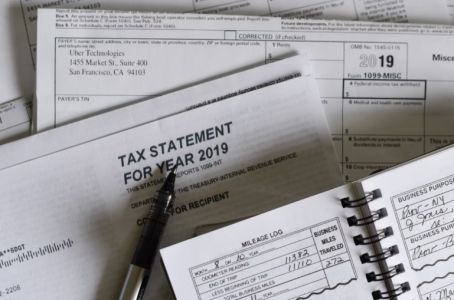New proposal aims to wipe out taxes on Social Security benefits
- Replies 1
For decades, millions of Americans have paid into Social Security expecting the benefits they earned would be theirs to keep.
Yet when retirement arrives, many are surprised to see federal taxes still carved out of their monthly checks.
Recent legislation provided a temporary deduction aimed at easing that burden, but critics say it does not go far enough. Now, a new proposal has emerged that could completely reshape how these benefits are taxed.
Sen. Ruben Gallego of Arizona has introduced the You Earn It, You Keep It Act, a bill that would permanently eliminate federal taxes on Social Security benefits.
Rep. Angie Craig of Minnesota has already introduced a companion measure in the House earlier this year.
“Despite decades of paying into the system, seniors are still forced to pay taxes on their hard-earned benefits—all while the ultra wealthy barely pay into the system,” Gallego said in a statement.
His bill seeks to offset the lost revenue by expanding payroll taxes to apply to earnings over $250,000. Currently, Social Security benefits are taxed using what is known as combined income, which includes adjusted gross income, tax-exempt interest, and half of Social Security benefits.

Depending on income level, up to 50% or even 85% of benefits can be subject to federal tax. For individual filers earning more than $34,000 or married couples earning above $44,000, the highest tax level applies.
Advocates argue this places a disproportionate burden on middle-income retirees who already face rising costs.
Earlier this year, President Donald Trump signed the so-called “big beautiful bill,” which introduced a temporary senior deduction through 2028.
Adults 65 and older may claim up to $6,000 as an additional deduction, with income limits determining eligibility.
Also read: When to expect your September Social Security check
While this change provides relief for middle-income households, experts note it leaves many seniors still paying taxes on their benefits.
High earners above the phaseout thresholds see little or no relief, while low-income beneficiaries were largely exempt already.
The Senior Citizens League, a nonpartisan advocacy group, has endorsed Gallego’s proposal. Executive Director Shannon Benton described eliminating federal taxes on Social Security benefits as a “commonsense step to ensure older Americans can keep more of what they’ve earned.”
According to Gallego’s office, the plan would extend the trust fund’s solvency until 2058 by raising revenue from wealthier earners.
Also read: Boost your Social Security income in retirement with these three smart strategies
That timeline aligns with an analysis by the Social Security chief actuary earlier this year. Still, the debate remains contentious as lawmakers weigh the program’s long-term funding challenges.
Some critics warn that removing these taxes without proper offsets could accelerate depletion of the trust funds.
Others argue that targeting higher earners for additional payroll contributions balances fairness with fiscal responsibility. Whether Gallego’s bill gains traction may depend on bipartisan willingness to address both solvency and equity concerns at the same time.
Read next: Social Security’s new portal might be the key to easier benefits—here’s why it matters for you

Social Security remains one of the most critical lifelines for retirees, and the question of taxing benefits strikes directly at household budgets. Do you think benefits should always remain tax-free for seniors, or should income-based taxation continue to play a role in funding the program? Share your thoughts in the comments and join the discussion.
Yet when retirement arrives, many are surprised to see federal taxes still carved out of their monthly checks.
Recent legislation provided a temporary deduction aimed at easing that burden, but critics say it does not go far enough. Now, a new proposal has emerged that could completely reshape how these benefits are taxed.
Sen. Ruben Gallego of Arizona has introduced the You Earn It, You Keep It Act, a bill that would permanently eliminate federal taxes on Social Security benefits.
Rep. Angie Craig of Minnesota has already introduced a companion measure in the House earlier this year.
“Despite decades of paying into the system, seniors are still forced to pay taxes on their hard-earned benefits—all while the ultra wealthy barely pay into the system,” Gallego said in a statement.
His bill seeks to offset the lost revenue by expanding payroll taxes to apply to earnings over $250,000. Currently, Social Security benefits are taxed using what is known as combined income, which includes adjusted gross income, tax-exempt interest, and half of Social Security benefits.

New proposal aims to wipe out taxes on Social Security benefits. Image source: Olga DeLawrence / Unsplash
Depending on income level, up to 50% or even 85% of benefits can be subject to federal tax. For individual filers earning more than $34,000 or married couples earning above $44,000, the highest tax level applies.
Advocates argue this places a disproportionate burden on middle-income retirees who already face rising costs.
Earlier this year, President Donald Trump signed the so-called “big beautiful bill,” which introduced a temporary senior deduction through 2028.
Adults 65 and older may claim up to $6,000 as an additional deduction, with income limits determining eligibility.
Also read: When to expect your September Social Security check
While this change provides relief for middle-income households, experts note it leaves many seniors still paying taxes on their benefits.
High earners above the phaseout thresholds see little or no relief, while low-income beneficiaries were largely exempt already.
The Senior Citizens League, a nonpartisan advocacy group, has endorsed Gallego’s proposal. Executive Director Shannon Benton described eliminating federal taxes on Social Security benefits as a “commonsense step to ensure older Americans can keep more of what they’ve earned.”
According to Gallego’s office, the plan would extend the trust fund’s solvency until 2058 by raising revenue from wealthier earners.
Also read: Boost your Social Security income in retirement with these three smart strategies
That timeline aligns with an analysis by the Social Security chief actuary earlier this year. Still, the debate remains contentious as lawmakers weigh the program’s long-term funding challenges.
Some critics warn that removing these taxes without proper offsets could accelerate depletion of the trust funds.
Others argue that targeting higher earners for additional payroll contributions balances fairness with fiscal responsibility. Whether Gallego’s bill gains traction may depend on bipartisan willingness to address both solvency and equity concerns at the same time.
Read next: Social Security’s new portal might be the key to easier benefits—here’s why it matters for you
Key Takeaways
- A new bill, the You Earn It, You Keep It Act, was introduced by Sen. Ruben Gallego to permanently eliminate federal taxes on Social Security benefits.
- Current law allows up to 85% of benefits to be taxed depending on income levels, leaving many middle-income retirees facing reduced payments.
- President Trump’s earlier “big beautiful bill” provided a temporary senior deduction through 2028 but did not eliminate taxation entirely.
- Gallego’s plan raises payroll tax contributions for earnings over $250,000, extending trust fund solvency to 2058 while aiming to protect retirees’ benefits.






